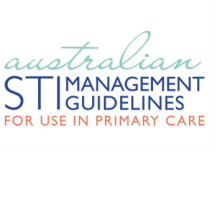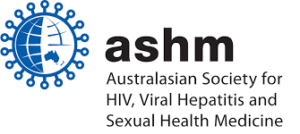Sexually Transmissible Infections
What are Sexually Transmissible Infections (STIs)?
STIs are infections which are passed from one person to another during unprotected sexual or genital to genital contact. STIs are caused by micro-organisms such as bacteria, viruses or parasites. STIs can affect areas of the body other than the genitals. They do not always cause signs or symptoms.
What activities put me at risk of STIs?
Having vaginal or anal sex without a condom (called unprotected sex) can place you at risk of getting an STI. You can also get some STIs from unprotected oral sex, and from skin-to-skin contact. Some activities put you at higher risk.
Riskier activities include having unprotected sex:
- With casual partners (the more partners, the greater the risk).
- With a partner who has had unprotected sex with casual partners.
- When travelling outside Australia or with a partner who has had unprotected sex outside Australia.
Types of STIs
Chlamydia
Chlamydia
Better Health Channel: Chlamydia
Chlamydia is the most common bacterial STI in Australia and is especially common in young people. It is caused by the bacteria chlamydia trachomatis.
If left untreated in women, chlamydia can lead to Pelvic Inflammatory Disease (PID), an infection of the uterus and fallopian tubes, which can cause infertility. Chlamydia can also affect fertility in men.
Chlamydia is easy to catch, easy to test for, and easy to treat.
How would I know if I had chlamydia?
Most people who have chlamydia do not have any symptoms which is why it’s so important to get tested regularly. If symptoms are present they can include:
- Vaginal bleeding between periods or after sex
- Pain with sex
- More painful periods
- Lower abdominal pain
- Penile discharge
- Pain passing urine
- Pain on ejaculation
How do you test for chlamydia?
The test for chlamydia is a urine test or a simple self-inserted vaginal swab. If you are having unprotected anal sex then a self-inserted anal swab may be needed.
How soon after unprotected sex can I have a test for chlamydia?
To be accurate a test for chlamydia can be done a week after the sex you are concerned about.
How is chlamydia treated?
Treatment is a single dose of oral antibiotics, or a longer course of antibiotics if any symptoms are present.
Gonorrhoea
Gonorrhoea
Patient Info: What is gonnorrhoea?
Gonorrhoea is a bacteria which infects the penis, vagina, anus or throat. Gonorrhoea is more common among men who have sex with men, but is becoming increasingly common generally in Australia. If left untreated in women, gonorrhoea can lead to Pelvic Inflammatory Disease (PID) an infection of the uterus and fallopian tubes which can cause infertility.
How would I know if I had gonorrhoea?
You can have gonorrhoea without knowing it as not everyone gets symptoms. Most women do not get symptoms.
If symptoms do occur they include:
- Unusual vaginal discharge (normal vaginal discharge can be clear or white and can be a small amount or quite a lot. Unusual vaginal discharge would mean that your discharge changed and would include discharge being brown, greenish, bloody, or suddenly smelling bad)
- Irregular vaginal bleeding-between periods or after sex.
- Pelvic pain, especially during intercourse
- Pain or discomfort passing urine
- A yellow or white penile discharge
- Redness around the opening of the penis
- Anal discharge and discomfort
How do you test for gonorrhoea?
The test for gonorrhoea is a urine test or a simple self-inserted vaginal swab. If you are having unprotected anal sex then a self-inserted anal swab may be needed. If you have symptoms a different type of swab will need to be done.
How soon after unprotected sex can I have a test for gonorrhoea?
To be accurate a test can be done for gonorrhoea 2 to 4 days after the sex you are worried about.
How is gonorrhoea treated?
Gonorrhoea is treated with antibiotics which are given orally and by injection.
Genital warts & Human Papilloma Virus
Genital warts & Human Papilloma Virus (HPV)
Department of Health: HPV Vaccine
Human Papilloma virus (HPV) is a large group of viruses. There are many types of HPV. Some HPV types can cause genital warts and some other types can cause cancers of the cervix or genitals if left undetected and untreated.
HPV is transmitted by skin to skin contact during sexual activity and most people will be exposed to HPV in their lifetime. The majority of infections will clear by themselves with no symptoms.
How would I know if I had genital warts?
If genital warts do occur they can be on the penis, vulva, vagina, anus and the skin close to these areas. Genital warts can be single or multiple lumps, they can sometimes be itchy, painful or may bleed.
Can I have a test for genital warts?
There is no test for the HPV type that causes visible warts- if you have symptoms see a doctor.
How are genital warts treated?
Treatment for warts is available and includes freezing, or application of liquid or cream.
What is the HPV vaccine?
A vaccine (Gardasil) is available which protects against the strains of HPV that cause almost all genital warts, as well as most HPV strains that cause cancer of the cervix and some other cancers.
If you were born after 1982 and grew up in Australia you will probably have had this vaccine at school or with your GP– check with your parents or your health practitioner.
Genital Herpes
Genital Herpes
Adam Ruins Everything: You probably have herpes and that’s okay
Herpes can occur on the lips or mouth area (cold sores), in the genital area (genital herpes), or the anal area (anal herpes).
Genital herpes is a very common STI. Around 1 in 8 sexually active people have genital herpes. It is caused by a virus called the herpes simplex virus (HSV). There are two types: HSV 1 and HSV 2. Herpes is transmitted during skin-to-skin contact during genital, anal, or oral sex and enters the skin through tiny cuts in the skin that you cannot see (called micro abrasions). Once you have genital herpes it remains in your body for life but is not always active and may never be cause for concern.
There are two types of HSV:
HSV 1:
- HSV 1 causes all oral cold sores and about half of genital herpes.
- It tends to cause milder genital herpes infections, with less frequent recurrences.
HSV 2:
- Causes the remaining cases of genital herpes, it is thought not to cause oral cold sores.
- HSV 2 tends to cause more severe symptoms and recurrences tend to be more frequent.
You can be infected with just HSV 1 or just HSV 2 or have both HSV 1 and HSV 2.
How would I know if I had genital herpes?
You may not necessarily know if you have it as many people who have the virus don’t get any symptoms.
If symptoms do appear they usually do so within days, weeks or months and can include:
- Pain, tingling or itching
- This may be followed by blisters which then break, leaving painful sores.
If you do get symptoms the first episode of herpes is usually the most severe. Some people only have a single episode, others have mild episodes from time to time and some have more severe frequent episodes.
Can I have a test for genital herpes?
There is no useful screening test for genital herpes. If you have any symptoms, such as a sore which appears from time to time, see a doctor for diagnosis at the time the sore is present.
How is genital herpes treated?
Herpes cannot be cured but anti-viral medication is available to reduce outbreaks and help to manage symptoms.
How can I reduce my risk of getting genital herpes?
Avoid oral sex when a cold sore is present on or around the mouth. Use condoms – they reduce the risk of transmission by about 50%.
What about genital herpes and pregnancy?
HSV can cause serious illness in newborn babies. In a woman who already has recurrent genital herpes the risk of transmission to her newborn is very low, and the majority of women are able to have normal vaginal deliveries. Pregnant women who do have recurrent genital herpes may choose to take an antiviral medication to reduce the risk of transmission in the final weeks of pregnancy. Discuss this with your doctor if you are pregnant and have recurrent genital herpes.
The risk of transmission to a newborn baby is highest if the woman becomes infected with genital herpes for the first time in the last few months of pregnancy. If your partner has cold sores it is important to avoid oral sex during pregnancy unless you know that you already have genital HSV 1 infection. If your partner has genital herpes then it is advised that they take anti-viral medication and avoid genital to genital contact if they think they may be getting an outbreak throughout the pregnancy in order to avoid you becoming infected.
Hepatitis B
Hepatitis B
Howcast: Recognise, treat & prevent Hepatitis B
Hepatitis B is a viral infection that results in inflammation of the liver and can cause serious illness.
How do you get hepatitis B?
It can be passed on by unprotected vaginal or anal sex, by sharing drug injecting equipment, during unsterile tattooing or body piercing, sharing toothbrushes or razors, through dental or other procedures in developing countries, and from mother to baby during pregnancy.
How would I know if I had hepatitis B?
Many people have no symptoms. If symptoms do occur they include loss of appetite, nausea and vomiting, lethargy and may progress to fever, joint pain and jaundice (yellowing of the skin and eyes). While it is a serious infection most adults who have hepatitis B recover and do not become infected again, however around 5% of people who become infected develop chronic hepatitis B, which is a long term infection where the virus stays in the body. People with chronic hepatitis B can still transmit the virus even though they have no symptoms. They are at risk of developing cirrhosis and liver cancer later in life.
Can I have a test for hepatitis B?
A blood test is available for hepatitis B infection. All pregnant women are usually tested for Hepatitis B in Australia when they have their routine blood tests.
How can I protect myself from hepatitis B?
- Vaccination is the best way to protect yourself from hepatitis B and is recommended for everyone in Australia. Hepatitis B vaccine was given to children in Year 7 in Australia from 1998 and to babies from 2000. The vaccine is believed to be over 90% effective. Check with your doctor to see if you have been vaccinated.
- Always use condoms when having vaginal or anal sex
- If you inject drugs, never share drug injecting equipment such as needles, syringes, tourniquets, spoons etc.
- Always wear gloves if you are providing first aid or cleaning up blood or body fluids.
Syphilis
Syphilis
Mayo Clinic Minute: Signs and symptoms of syphilis
Syphilis is a sexually transmissible infection caused by a bacteria, treponema pallidum. It is not as common in Australia as it is in some other countries, but there has been an increase in cases recently. It is easily treated with antibiotics, but without treatment, it can cause very serious health problems.
Syphilis is more common among men who have sex with men and in Aboriginal and Torres Strait Islander people in rural and remote areas.
How do you get syphilis?
You can catch syphilis through unprotected vaginal, anal or oral sex. Syphilis can also be transmitted from mother to baby during pregnancy.
How would I know if I had syphilis?
Up to 50% of people infected with syphilis have no early symptoms. Syphilis has three stages: primary, secondary, and latent and the symptoms are differ according the stage.
Primary syphilis: The symptom of primary syphilis is a painless ulcer-like sore which usually occurs on the genitals but can also occur in the mouth, anus, or on the cervix. If it does occur it the sore usually appears about 3-4 weeks after infection but can occur between 10 and 90 days.
Secondary syphilis: Symptoms occur about 2 to 4 months after infection and can come and go for up to 2 years. These can include fever, fatigue, headaches, sore throat, hair loss, and a non-itchy rash which generally appears all over the body but may just appear on the hands and feet. At this stage you are still infectious.
Latent syphilis: If left undiagnosed and untreated about two years after infection syphilis then becomes latent where there are no symptoms and it is no longer infectious. If it is left untreated latent syphilis can cause very serious illness many years later, mainly affecting the heart and the brain.
If a pregnant woman is infected with syphilis it can cause serious health problems for her baby. All pregnant women in Australia are tested for syphilis when they have their routine ante-natal blood tests.
Can I have a test for syphilis?
Yes, the test for syphilis is a simple blood test.
How is syphilis treated?
Syphilis is treated with antibiotics which are given by injection.
Human Immunodeficiency Virus (HIV)
Human Immunodeficiency Virus (HIV)
Healthy WA: What it means to have HIV
HIV is a viral infection that if left untreated, breaks down the body’s natural defences against infections by weakening the immune system, and can lead to Acquired Immune Deficiency Syndrome (AIDS).
How do you get HIV?
HIV is in the blood, vaginal secretions, or semen of a person infected who has the virus and is passed on by anal or vaginal sex without a condom, sharing drug injecting equipment, and through unsterile tattooing or body piercing in developing countries. It can also be passed from mother to baby in pregnancy, birth, or during breastfeeding.
The risk of transmission through oral sex is very low.
Who is most at risk of HIV?
Men who have sex with men and gay men who have unprotected sex are most at risk of getting HIV.
Other groups at higher risk include:
- People who have unprotected sex with partner/s who are HIV positive or who might be at risk of being HIV positive.
- People who have unprotected sex with partner/s from countries where HIV is more common (such as Africa, Asia, and the Pacific).
- People who inject illicit drugs and share drug injecting equipment.
How would I know if I have HIV?
You probably wouldn’t know if you have HIV unless you have been tested. However some people do get some symptoms between 10 days and six weeks after infection where they feel extremely unwell and experience fever, headaches, night sweats, rash, extreme tiredness, nausea, diarrhoea, aches and pains, a sore throat, and a cough.
Can I have a test for HIV?
Yes, the test for HIV is a simple blood test. The blood test looks for HIV antibodies, which are your body’s response to the HIV virus. It can take between 6 and 12 weeks for your body to make these antibodies and for the test to be accurate (this is called the window period).
All pregnant women in Australia are usually tested for HIV when they have their routine ante-natal blood tests.
How is HIV treated?
HIV is not curable but can be managed well with daily medications called antiretroviral therapy (ART). These medications stop the HIV multiplying and help people with HIV to live a normal healthy life.
How can I protect myself from HIV?
Using condoms every time you have sex is the most effective way to prevent HIV.
If you inject drugs be sure to never share drug injecting equipment such as needles, syringes, spoons, water etc.
If you are in a higher risk group (as mentioned above) you may want to consider talking to a doctor about PrEP which is a medication that is taken daily to prevent HIV infection.
For more information
Trichomoniasis
Trichomoniasis
Howcast: How to recognise, treat & prevent trichomoniasis
Trichomoniasis is a genital infection caused by an organism called a protozoa. Trichomoniasis is common worldwide but is relatively rare in urban Australia. It occurs more often in rural and remote areas and in Aboriginal and Torres Strait Islander women. Trichomoniasis is not usually serious but can be unpleasant.
How do you get trichomoniasis?
Trichomoniasis is passed on during unprotected vaginal or anal intercourse.
How would I know if I have trichomoniasis?
In women symptoms may include a frothy yellow, green, or grey vaginal discharge, a strong bad smelling vaginal odour, and vaginal itching and burning.
Symptoms in men are very rare but if they occur they may include discharge from the penis and pain on passing urine.
Can I have a test for trichomoniasis?
Trichomoniasis is not routinely tested for in areas where it is uncommon. If you have symptoms a test can be taken.
How is trichomoniasis treated?
It is treated with an oral antibiotic.
How do I prevent trichomoniasis?
Using condoms every time you have sex is the most effective way to prevent becoming infected with trichomoniasis.
Mycoplasma genitalium
Mycoplasma genitalium
Resistance Guided Therapy: Addressing the rise in antibiotic resistance Mycoplasma genitalium (Mgen) in Australia
Mycoplasma genitalium is a bacteria which can cause infection of the cervix, urethra (penis), and anus. It is similar to, but a lot less common than chlamydia. There are currently no recommendations to include routine testing for mycoplasma genitalium in people who have no symptoms.
How do you get mycoplasma genitalium?
It is passed on during unprotected vaginal or anal intercourse.
How would I know if I had mycoplasma genitalium?
People may have the infection and have no symptoms. If symptoms do occur they can include:
- Lower abdominal pain/discomfort.
- Pain while having sex.
- Unusual vaginal bleeding (between periods and after sex).
- Unusual vaginal discharge.
- Discharge from the penis.
- Pain on passing urine.
Can I have a test for mycoplasma genitalium?
Testing is limited to those with symptoms or who have had sex with partners with known mycoplasma genitalium infection only. If testing is required samples are collected from urine, a urethral sample from the opening at the tip of the penis, or from a vaginal swab. If symptoms are present and it is left untreated, mycoplasma infection can extend to the uterus (womb) and fallopian tubes, causing pelvic inflammatory disease (PID). PID can cause infertility. If infection occurs during pregnancy mycoplasma genitalium can be associated with miscarriage and pre-term delivery.
How is it treated?
Mycoplasma genitalium can be difficult to treat. If it is diagnosed, two oral antibiotics are used to treat it. A follow up test is done after one month, and a further repeat test is usually advised 3 months later to make sure that there has been no re-infection.
How do I prevent mycoplasma genitalium?
As with other sexually transmissible infections the best way to prevent mycoplasma genitalium is by using condoms correctly every time you have sex.
Conditions which are not STIs but which can affect the genital area
Vaginal Thrush
Vaginal Thrush
Canesten: The Naked Truth – What is thrush and what are the symptoms?
Vaginal thrush is a very common vaginal infection caused by an overgrowth of a type of yeast called candida. This organism lives naturally in the bowel and in small numbers in the vagina. It is mostly harmless, but symptoms can develop if numbers increase in the vagina. Thrush needs the hormone oestrogen to thrive so it very rarely occurs in girls before puberty, or in women after menopause (unless they are on hormone replacement therapy). A vaginal thrush infection can be acute (a single episode) or chronic (recurring or persisting for a long time). Vaginal thrush is not an STI.
What causes a vaginal thrush infection?
A vaginal thrush infection can occur when normal levels of candida in the vagina increase. The vagina is normally mildly acidic and if the acid balance changes, yeasts which naturally occur in the vagina can multiply and cause symptoms. Thrush can occur for no obvious reason, however there are some things that make thrush more likely:
- Taking certain antibiotics.
- Being pregnant.
- Having diabetes.
- Having sweaty and moist skin.
- Having another skin condition (e.g. eczema or psoriasis).
- Immunosuppressive treatment (treatment or medication that reduces your immunity).
How would I know if I have a vaginal thrush infection?
In some instances the vaginal thrush infection can be present and cause no symptoms at all. In most cases however symptoms are experienced and can include any or all of the following:
- Vulval itching that can be mild or severe.
- A white, yeasty smelling discharge (that looks like cottage cheese).
- Redness or swelling of the vulva.
- Vulval soreness.
- Vulval pain during intercourse.
- Stinging when passing urine.
Can I have a test for vaginal thrush?
Yes you can have a test for thrush. If you have symptoms it is recommended that a swab of the vagina be taken for testing, to determine whether it is vaginal thrush or some other cause. It is also possible to have more than one infection at the same time (e.g. thrush and a sexually transmissible infection). If the problem recurs, and the symptoms are exactly the same, it may not always be necessary to repeat the test but if anything is different from a previous episode, a repeat swab may be recommended.
How is it treated?
Sometimes symptoms may only last a short time and treatment may not be needed. If treatment is needed there are the following options:
-
Antifungal creams or vaginal pessaries
These treatments are available from the pharmacist without a prescription.
Creams come with applicators, which should be filled and the cream inserted inside the vagina at bedtime. The cream can also be used externally at the same time. Pessaries are tablets or capsules, which can be inserted into the vagina with your finger or with an applicator.
Treatment can vary from a single dose to a 3, 6, or 14 night course.
It is important to use the full course of cream or pessaries, even if you get your period.
-
Oral tablets: Single dose
Oral tablets are available as a single dose over the counter in pharmacies and are shown to be as effective as the cream/pessaries. Sometimes your doctor may recommend that you use both the oral tablets and the cream/pessaries.
-
Oral tablets: extended treatment
Extended treatment with oral tablets may be prescribed for chronic thrush when the infection is resistant to other treatment or recurring frequently. You will need a prescription for this extended treatment.
Oral treatment for thrush cannot be used during pregnancy and breast feeding. Creams and pessaries are still ok.
How can I prevent thrush?
Thrush is a very common infection and most women will have an episode at least once in their lifetime. While there is no known way that is guaranteed to prevent thrush, good vulval care may be helpful. Good vulval care includes using only water to wash the vulva and vaginal area and avoiding any soaps, body wash, or ‘feminine hygiene’ products such as sprays, wipes or washes; never douching; avoiding wearing tight clothing; and not wearing undies at night.
Pubic lice (Crabs)
Pubic lice (Crabs)
Howcast: How to recognise, treat & prevent crabs
Pubic lice are small parasites that infect the pubic hair, armpits, chest hair, and occasionally beards, eyebrows and eyelashes.
How do you get them?
They are passed on by direct person-to-person contact with the area that is infected, or by coming into contact with infected bedding or clothes. This may not necessarily be during sexual contact.
How would I know if I had pubic lice?
Symptoms of pubic lice include lots of itchiness in areas the affected areas where hair is present. This is often worse at night. Very tiny bugs may be present, tiny whitish eggs (nits) may be seen on the hair follicles, and small bluish or red patches on the skin where the hair is.
How are they treated?
Pubic lice can be treated with a pubic lice treatment available over the counter from pharmacies. Clothes and bedding also need to be treated.
How can I prevent them?
Avoid sexual or intimate contact with someone who has been infected until they have been treated. Also avoid using the same bedclothes, clothes, or towels etc. until they have been washed.
Scabies
Scabies
Healthery: What are Scabies?
Scabies is a common skin infection. It is caused by a tiny mite, Sarcoptes scabiei.
How do you get scabies?
Scabies can be spread sexually as well as through non sexual skin to skin contact with someone who has scabies.
How would I know if I had scabies?
The main symptom is intense itching which is worse at night. Sometimes a small rash is visible. It occurs most commonly in the between the fingers, on the wrists, armpits, stomach, and genitals.
Is there a test for scabies?
There is no test for scabies. If you think you have scabies you need to see a doctor for diagnosis.
How are scabies treated?
Scabies is usually treated by applying a topical anti-scabietic cream or lotion to the skin of the entire body. These are available over the counter from pharmacies.
How can I prevent scabies?
The best way to prevent scabies is to avoid any physical contact with someone who is infected until after they have been treated.
Molluscum Contagiosum
Molluscum Contagiosum
This is a common skin infection caused by a virus. It is common in children but also occurs in adults.
How would I know if I had it?
Molluscum contagiosum causes small painless firm lumps with a dimple in the centre. It can appear anywhere on the body but in adults they usually appear on the buttocks, thighs, lower abdomen and genital area.
How do you get it?
It can be spread sexually as well as through non sexual skin to skin contact.
How is it treated?
It will resolve on its own within 12 months but can be treated with freezing or cream.
How can I prevent it?
You cannot really prevent it, it is a common skin infect that is passed between people.









